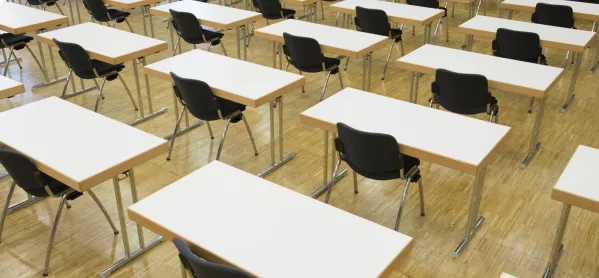I didn’t get to have a final English lesson with my Diploma students.
You know, the one where you just sit and chat about the year and maybe do some last-minute revision of set texts for the exams that are looming.
Instead, just after finishing an online Teams chat where I spent the majority of the time trying to quell their anxieties about the craziness we found ourselves in, the IB announced there would no longer be an exam series for this cohort and everything was thrown into disarray.
For language and literature, we were lucky that only 50 per cent of the course was an examined unknown as the IB had already moderated our oral assessments and marked the written task internal assessments fairly and as normal.
A bumpy process
Even so, there were still plenty of nerves flying around when predicted results day arrived last week.
Despite this, we actually fared pretty well - but the process has still created a lot of stress and anxiety for students, parents and teachers too.
After all, there are countless examples of students across the globe where final results did not match teacher predictions or internal assessments, leading to questions being asked about the transparency of the entire process.
Because let’s not forget, these exams matter.
For many students, the cost of Covid-19 is not only a loss of short-term rites of passage (no graduation ceremony, no results day celebration, in some cases no final goodbyes) but also a tainted future of no secure university place or even failing the entire diploma and having to redo a whole year.
There is a collective grief and trauma to deal with and the lack of exams has meant that it has been teachers and schools left struggling to explain, to distraught students and parents, a process that has not been conducted with transparency and has therefore opened itself up to intense scrutiny.
Questions that need answering
By being reticent about the process, the awarding of grades has been called into question.
Why were grade boundaries changed for different time zones when no exams were sat?
What ‘algorithm’ has been used to allocate grades if, in some cases, the data that has been available has not seemingly been considered.
What does ‘historical data’ have to do with the individuals who have struggled through an unrelenting two-year programme in adverse circumstances?
And despite these clear issues, contesting costs money.
Originally students were told that grades wouldn’t change unless a 10 per cent discrepancy in terms of the points awarded to internal assessments was found.
Essentially, it wasn’t worth appealing.
Welcome engagement
Recently, this has been altered so the EUR (Enquiry Upon Results) tolerance is open to all who want to contest, which is a welcome
The IB has also pledged to review discrepancies with individual candidates, at subject level and with whole cohorts. Prioritising cases that are linked to university admissions will also be welcome.
They have committed to dialogue and there is an awareness that we all want the same thing - students who are able to follow their dreams and go on to a successful future.
Long-term concerns
For many teachers, however, concern has now shifted to what happens should the pandemic continue to disrupt education into the new academic year.
How will the IB and other exam boards respond to the continued challenge of ensuring a fair system is upheld so that all stakeholders have trust and belief in it?
Part of the reason for the historic decision to cancel the exams was to prioritise health and wellbeing over academics.
Unfortunately, if the process that replaces them ends up causing more anxiety and despair, the whole system might need a rethink.
The author is an MYP coordinator at an IB school in Europe




